20 Books Published by University of Nebraska Press on AALBC — Book Cover Collage
 Breaking the Silence: Anthology of Liberian Poetry
Breaking the Silence: Anthology of Liberian Poetry
by Patricia Jabbeh WesleyUniversity of Nebraska Press (Mar 01, 2023)
Read Detailed Book Description
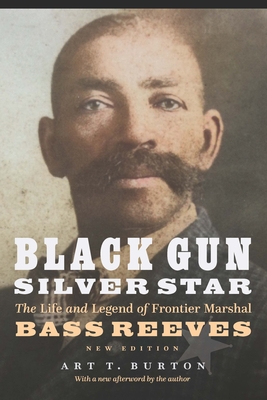 Black Gun, Silver Star: The Life and Legend of Frontier Marshal Bass Reeves
Black Gun, Silver Star: The Life and Legend of Frontier Marshal Bass Reeves
by Art T. BurtonBison Books (Sep 01, 2022)
Read Detailed Book Description
In The Story of Oklahoma, Deputy U.S. Marshal Bass Reeves appears as the "most feared U.S. marshal in the Indian country." That Reeves was also an African American who had spent his early life enslaved in Arkansas and Texas made his accomplishments all the more remarkable. Black Gun, Silver Star sifts through fact and legend to discover the truth about one of the most outstanding peace officers in late nineteenth-century America—and perhaps the greatest lawman of the Wild West era.
Bucking the odds ("I’m sorry, we didn’t keep Black people’s history," a clerk at one of Oklahoma’s local historical societies answered one query), Art T. Burton traces Reeves from his days of slavery to his Civil War soldiering to his career as a deputy U.S. marshal out of Fort Smith, Arkansas, when he worked under "Hanging Judge" Isaac C. Parker. Fluent in Creek and other regional Native languages, physically powerful, skilled with firearms, and a master of disguise, Reeves was exceptionally adept at apprehending fugitives and outlaws and his exploits were legendary in Oklahoma and Arkansas.
In this new edition Burton traces Reeves’s presence in the national media of his day as well as his growing modern presence in popular media such as television, movies, comics, and video games.
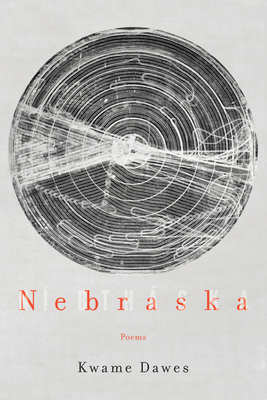 Nebraska: Poems
Nebraska: Poems
by Kwame DawesUniversity of Nebraska Press (Oct 01, 2019)
Read Detailed Book Description
Kwame Dawes is not a native Nebraskan. Born in Ghana, he later moved to Jamaica, where he spent most of his childhood and early adulthood. In 1992 he relocated to the United States and eventually found himself an American living in Lincoln, Nebraska.
In Nebraska, this beautiful and evocative collection of poems, Dawes explores a theme constant in his work—the intersection of memory, home, and artistic invention. The poems, set against the backdrop of Nebraska’s discrete cycle of seasons, are meditative even as they search for a sense of place in a new landscape. While he shovels snow or walks in the bitter cold to his car, he is engulfed with memories of Kingston, yet when he travels, he finds himself longing for the open space of the plains and the first snowfall. With a strong sense of place and haunting memories, Dawes grapples with life in Nebraska as a transplant.
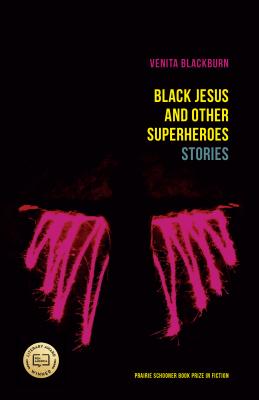 Black Jesus and Other Superheroes: Stories
Black Jesus and Other Superheroes: Stories
by Venita BlackburnUniversity of Nebraska Press (Sep 01, 2017)
Read Detailed Book Description
2018 PEN America Literary Award Winner–Los Angeles Winner of the Prairie Schooner Book Prize in Fiction, Black Jesus and Other Superheroes chronicles ordinary people achieving vivid extrasensory perception while under extreme pain. The stories tumble into a universe of the jaded and the hopeful, in which men and women burdened with unwieldy and undesirable superhuman abilities are nonetheless resilient in subtle and startling ways.
Venita Blackburn’s characters hurl themselves toward the inevitable fates they might rather wish away. Their stories play with magic without the sparkle, glaring at the internal machinations of the human spirit. Fragile symbols for things such as race, sexuality, and love are lifted, decorated, and exposed to scrutiny and awe like so many ruins of our imagination. Through it all Blackburn’s characters stumble along currents of language both thoughtful and hilarious.
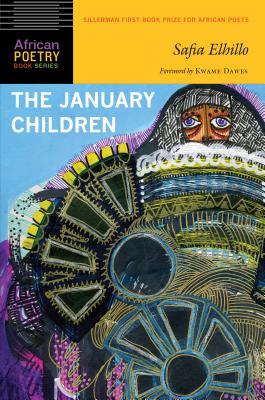 January Children: African Poetry Book Series
January Children: African Poetry Book Series
by Safia ElhilloUniversity of Nebraska Press (Mar 01, 2017)
Read Detailed Book Description
“Tiya Miles is a gentle genius … All That She Carried is a gorgeous book and a model for how to read as well as feel the precious artifacts of Black women’s lives.”—Imani Perry, author of Breathe: A Letter to My Sons
A renowned historian traces the life of a single object handed down through three generations of Black women to craft an extraordinary testament to people who are left out of the archives.
In 1850s South Carolina, an enslaved woman named Rose faced a crisis, the imminent sale of her daughter Ashley. Thinking quickly, she packed a cotton bag with a few precious items as a token of love and to try to ensure Ashley’s survival. Soon after, the nine-year-old girl was separated from her mother and sold.
Decades later, Ashley’s granddaughter Ruth embroidered this family history on the bag in spare yet haunting language— including Rose’s wish that “It be filled with my Love always.” Ruth’s sewn words, the reason we remember Ashley’s sack today, evoke a sweeping family story of loss and of love passed down through generations. Now, in this illuminating, deeply moving new book inspired by Rose’s gift to Ashley, historian Tiya Miles carefully unearths these women’s faint presence in archival records to follow the paths of their lives—and the lives of so many women like them—to write a singular and revelatory history of the experience of slavery, and the uncertain freedom afterward, in the United States.
The search to uncover this history is part of the story itself. For where the historical record falls short of capturing Rose’s, Ashley’s, and Ruth’s full lives, Miles turns to objects and to art as equally important sources, assembling a chorus of women’s and families’ stories and critiquing the scant archives that for decades have overlooked so many. The contents of Ashley’s sack— a tattered dress, handfuls of pecans, a braid of hair, “my Love always”—are eloquent evidence of the lives these women lived. As she follows Ashley’s journey, Miles metaphorically unpacks the bag, deepening its emotional resonance and exploring the meanings and significance of everything it contained.
All That She Carried is a poignant story of resilience and of love passed down through generations of women against steep odds. It honors the creativity and fierce resourcefulness of people who preserved family ties even when official systems refused to do so, and it serves as a visionary illustration of how to reconstruct and recount their stories today.
“Ashley’s Sack, as it is known, with its short and simple message of intergenerational love, becomes a portal through which Tiya Miles views and reimagines the inner lives of Black women. She excavates the history of Black women who face insurmountable odds and invent a language that can travel across time.”—Michael Eric Dyson , author of Long Time Coming: Reckoning with Race in America
“Tiya Miles uses the tools of her trade to tend to Black people, to Black mothers and daughters, to our wounds, to collective Black love and loss. This book demonstrates Miles’s signature genius in its rare balance of both rigor and care.”—Brittney Cooper, author of Eloquent Rage: A Black Feminist Discovers Her Superpower
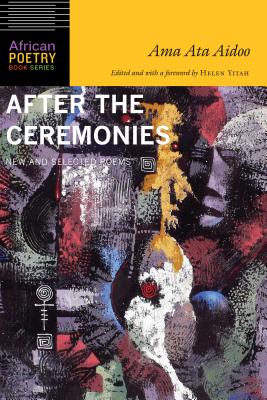 After the Ceremonies: New and Selected Poems
After the Ceremonies: New and Selected Poems
by Ama Ata AidooUniversity of Nebraska Press (Mar 01, 2017)
Read Detailed Book Description
Ama Ata Aidoo is one of the best-known African writers today. Spanning three decades of work, the poems in this collection address themes of colonialism, independence, motherhood, and gender in intimate, personal ways alongside commentary on broader social issues. After the Ceremonies is arranged in three parts: new and uncollected poems, some of which Aidoo calls "misplaced or downright lost"; selections from Aidoo’s An Angry Letter in January and Other Poems; and selections from Someone Talking to Sometime.
Although Aidoo is best known for her novels Changes: A Love Story and Our Sister Killjoy, which are widely read in women’s literature courses, and her plays The Dilemma of a Ghost and Anowa, which are read and performed all over the world, her prowess as a poet shines in this collection.
 When the Wanderers Come Home
When the Wanderers Come Home
by Patricia Jabbeh WesleyUniversity of Nebraska Press (Nov 01, 2016)
Read Detailed Book Description
This anthology features collaboratively created poems by 84 contributors of all experiences and geographies - from state poets laureates to casual journalers; from Pennsylvania to Georgia to South Korea, India and South Africa.
In 2012, inspired by the early 20th century French surrealist parlor game, Exquisite Corpse, M Ayodele Heath began hosting collaborative poetry-making sessions, or digital salons, on his Facebook page. To date, more than 150 poets participated in these virtual events. Heath chose the very best 50 poems, out of hundreds, to carefully catalog, assemble and preserve.
The anthology has three sections: collaborative poems, poems from the most frequent contributors, and a step-by-step guide for the reader. What sounds like a very straightforward book of poetry is a complex, unique and layered book. In the same way, the visual surface of an electronic device is straightforward and intuitive, the back end of that device contains layer upon layer of parts and programming. Heath uses the structure of the anthology to encourage the reader to discover poems and poetry writing in new ways.
The contributors (representing over 20 U.S. states and 4 countries) in Electronic Corpse: Poems From A Digital Salon are deeply symbolic. Crafted by poets of all colors, nationalities, genders, and classes, they are simply poems. Poems made by people who entered into a playful language exercise with no expected outcome or pre-conceived agenda. They are an example of what *we* can create together.
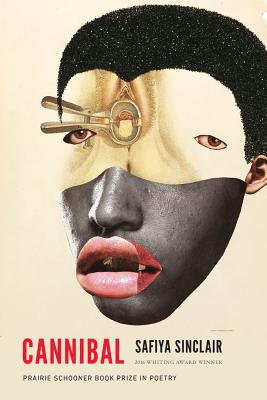 Cannibal
Cannibal
by Safiya SinclairUniversity of Nebraska Press (Sep 01, 2016)
Read Detailed Book Description
Winner of the 2016 Whiting Award†Winner of the Addison Metcalf Award from the American Academy of Arts & LettersWinner of the OCM Bocas Prize for Caribbean Literature (Poetry)An American Library Association†"Notable Book of the Year"†Longlisted for the 2017 PEN Open Book AwardLonglisted for the 2017 Dylan Thomas Prize†One of BuzzFeed’s Best Poetry Books of 2016One of The New Yorker’s "Books We Loved in 2016"A†Publishers Weekly†"Most Anticipated Book of Fall 2016"
Colliding with and†confronting†The Tempest†and postcolonial identity, the poems in Safiya Sinclair’s†Cannibal†explore Jamaican childhood and history, race relations in America, womanhood, otherness, and exile. She evokes a home no longer accessible and a body at times uninhabitable, often mirrored by a hybrid Eve/Caliban figure. Blooming with intense lyricism and fertile imagery, these full-blooded poems are elegant, mythic, and intricately woven. Here the female body is a dark landscape; the female body is cannibal. Sinclair shocks and delights her readers with her willingness to disorient and provoke, creating a multitextured collage of beautiful and explosive poems.
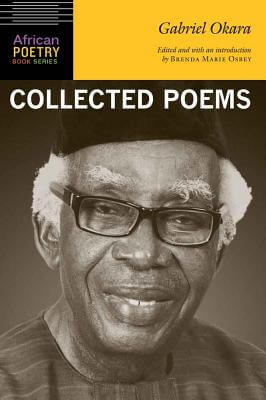 Gabriel Okara: Collected Poems
Gabriel Okara: Collected Poems
by Gabriel OkaraUniversity of Nebraska Press (Apr 01, 2016)
Read Detailed Book Description
Gabriel Okara, a prize-winning author whose literary career spans six decades, is rightly hailed as the elder statesman of Nigerian literature. The first Modernist poet of anglophone Africa, he is best known for The Fisherman’s Invocation (1978), The Dreamer, His Vision (2005), and for his early experimental novel, The Voice (1964).
††††††††††††††
Arranged in six sections, Gabriel Okara: Collected Poems includes the poet’s earliest lyric verse along with poems written in response to Nigeria’s war years; literary tributes and elegies to fellow poets, activists, and loved ones long dead; and recent dramatic and narrative poems. The introduction by Brenda Marie Osbey contextualizes Okara’s work in the history of Nigerian, African, and English language literatures. Gabriel Okara: Collected Poems is at once a treasure for those long in search of a single authoritative edition and a revelation and timely introduction for readers new to the work of one of Africa’s most revered poets.
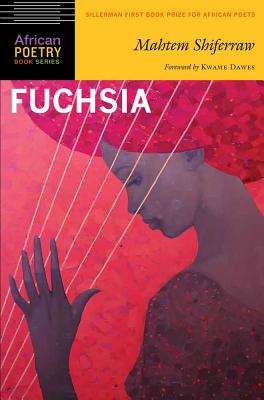 Fuchsia (African Poetry Book)
Fuchsia (African Poetry Book)
by Mahtem ShiferrawUniversity of Nebraska Press (Mar 01, 2016)
Read Detailed Book Description
Winner of the Sillerman First Book Prize for African Poets, Ethiopian American Mahtem Shiferraw’s Fuchsia examines conceptions of the displaced, disassembled, and nomadic self. Embedded in her poems are colors, elements, and sensations that evoke painful memories related to deep-seated remnants of trauma, war, and diaspora. Yet rooted in these losses and dangers also lie opportunities for mending and reflecting, evoking a distinct sense of hope. Elegant and traditional, the poems in Fuchsia examine what it means to both recall the past and continue onward with a richer understanding.
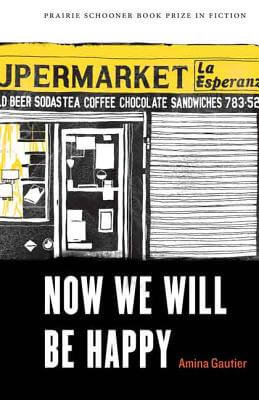 Now We Will Be Happy
Now We Will Be Happy
by Amina GautierUniversity of Nebraska Press (Sep 01, 2014)
Read Detailed Book Description
Now We Will Be Happy is a prize-winning collection of stories about Afro-Puerto Ricans, U.S.-mainland-born Puerto Ricans, and displaced native Puerto Ricans who are living between spaces while attempting to navigate the unique culture that defines their†identity. Amina Gautier’s characters deal with the difficulties of bicultural identities in a world that wants them to choose only one.
The characters in Now We Will Be Happy are as unpredictable as they are human. A teenage boy leaves home in search of the mother he hasn’t seen since childhood; a granddaughter is sent across the ocean to broker peace between her relatives; a widow seeks to die by hurricane; a married woman takes a bathtub voyage with her lover; a proprietress who is the glue that binds her neighborhood cannot hold on to her own son; a displaced wife develops a strange addiction to candles.†
Crossing boundaries of comfort, culture, language, race, and tradition in unexpected ways, these characters struggle valiantly and doggedly to reconcile their fantasies of happiness with the realities of their existence.
Finalist for the International Latino Book Award
Winner of an International Book Award (Literary Fiction Category)
Winner of a National Silver IPPY Award (Multicultural Fiction Category)
Winner of a Florida Authors and Publishers Association Award (Short Story Fiction Category)
Winner of a USA Best Book Award (African American Fiction Category)
Finalist, Next Generation Indie Book Award (Short Story Fiction Category)
Finalist, National Indie Excellence Award (Short Stories Category)
Longlisted for the Chautauqua Prize in Fiction
Shortlisted for the William Saroyan International Prize
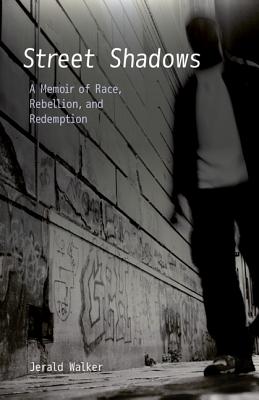 Street Shadows: A Memoir of Race, Rebellion, and Redemption
Street Shadows: A Memoir of Race, Rebellion, and Redemption
by Jerald WalkerBison Books (Mar 01, 2012)
Read Detailed Book Description
Street Shadows recounts Jerald Walker’s renunciation of the "thug life" he had embraced as a teenager on the South Side of Chicago in favor of the education and middle-class life his parents had always dreamed of for their children. By turns ironic, humorous, angry, and poignant, Walker’s narrative dramatically captures his pursuit and embodiment of the "American dream" the effort to rise above obstacles such as racism and poverty through hard work and determination.
Walker explores questions of race and identity through the lens of personal choice—including decisions he made as a high school dropout, a drug and alcohol abuser, a returning student, a young academic, a visitor to Africa in search of his roots, and a husband and father, as well as the diverse choices made by his blind parents, his six siblings, and his wife and her family. He highlights the importance of education, the values of self-help and self-reliance, and his rejection of the victim mentality that many feel pervades black communities.
Winner of the 2011 PEN New England/L. L. Winship Award for Nonfiction, Street Shadows is an eloquent account of how the past shadows but need not determine the present. It is also a stirring portrait of two Americas—one hopeless, the other inspirational—embodied within the same man.
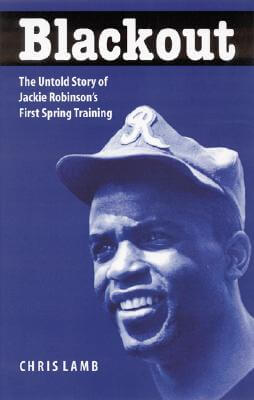 Blackout: The Untold Story of Jackie Robinson’s First Spring Training
Blackout: The Untold Story of Jackie Robinson’s First Spring Training
by Chris LambUniversity of Nebraska Press (Sep 01, 2004)
Read Detailed Book Description
In the spring of 1946, following the defeat of Hitler’s Germany, America found itself still struggling with the subtler but no less insidious tyrannies of racism and segregation at home. In the midst of it all, Jackie Robinson, a full year away from breaking major league baseball’s color barrier with the Brooklyn Dodgers, was undergoing a harrowing dress rehearsal for integration—his first spring training as a minor league prospect with the Montreal Royals, Brooklyn’s AAA team. In Blackout, Chris Lamb tells what happened during these six weeks in segregated Florida—six weeks that would become a critical juncture for the national pastime and for an American society on the threshold of a civil rights revolution.Blackout chronicles Robinson’s tremendous ordeal during that crucial spring training—how he struggled on the field and off. The restaurants and hotels that welcomed his white teammates were closed to him, and in one city after another he was prohibited from taking the field. Steeping his story in its complex cultural context, Lamb describes Robinson’s determination and anxiety, the reaction of the black and white communities to his appearance, and the unique and influential role of the press—mainstream reporting, the alternative black weeklies, and the Communist Daily Worker—in the integration of baseball. Told here in detail for the first time, this story brilliantly encapsulates the larger history of a man, a sport, and a nation on the verge of great and enduring change.
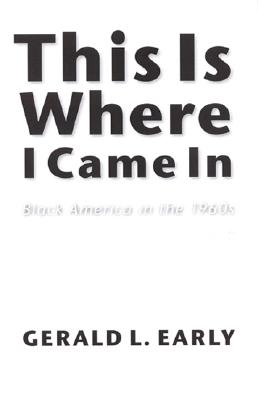 This Is Where I Came In: Black America in the 1960s
This Is Where I Came In: Black America in the 1960s
by Gerald L. EarlyUniversity of Nebraska Press (Oct 01, 2003)
Read Detailed Book Description
The fascinating and turbulent black America of the 1960s emerges in these essays, through the lenses of dissent and its contradictions. Gerald L. Early revisits this volatile time in American history, when class, culture, and race ignited conflagrations of bitterness and hatred across the nation.†The lives of three active and influential people are given special attention: Cecil B. Moore, advocate and agitator in the “racial tinderbox” of black Philadelphia; Muhammad Ali, promoter of a “colored” consciousness; and Sammy Davis Jr., survivor of black vaudeville and liberator of black performers.†The fiercely independent Moore, who rebuffed the black political establishment because it failed to address the concerns and needs of the majority of the black populace, used the authority of the NAACP to forge a militant, populist organization at the local level. Ali, one of the most widely recognized athletes of all time, combined protest and action to become a hero for black and “colored” people throughout the world, and became a type of ambassador to the Third World. Davis mirrored America’s emancipation, confusion, and self-destructiveness, and, most important, its self-consciousness, which transcended even his remarkable accomplishments as an entertainer. As Early demonstrates, the careers and lives of Moore, Ali, and Davis illustrate and embody the ambiguity and struggle of American identity in the 1960s.
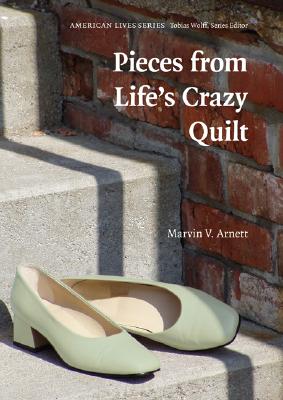 Pieces from Life’s Crazy Quilt
Pieces from Life’s Crazy Quilt
by Marvin V. ArnettUniversity of Nebraska Press (Apr 01, 2003)
Read Detailed Book Description
Part memoir and part urban social history, Pieces from Life’s Crazy Quilt is an African American woman’s personal account of her life during a racially turbulent period in a northern American city. Raised in a black neighborhood in urban Detroit, Marvin V. Arnett begins her book with her birth during the Great Depression, and ends with the infamous Detroit race riot of 1943. Arnett’s close observations and attention to the details of her neighborhood and the complex adult relationships around her make this an understated yet powerful story of witness.†Like the idiosyncratic pieces of a crazy quilt, each chapter functions alone but takes on particular resonance when considered with the whole. Choreographed as one-act plays, each chapter invites the reader into the life of the Sprague family and their neighbors during the years after the Ford Motor Company closed their Detroit plants. Arnett tells the story of her childhood with subversive allusions to the Victorian-era coming-of-age stories she consumed while growing up and the moral lessons she absorbed in such readings but could not reconcile with her own experience.
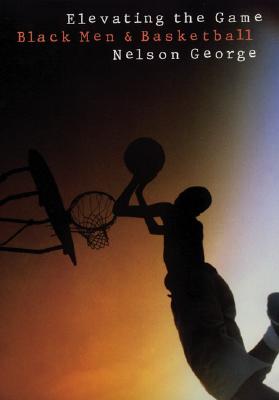 Elevating the Game: Black Men and Basketball
Elevating the Game: Black Men and Basketball
by Nelson GeorgeUniversity of Nebraska Press (Nov 01, 1999)
Read Detailed Book Description
Book by George, Nelson
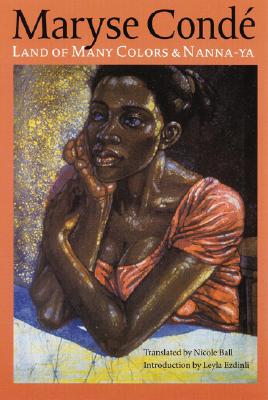 Land of Many Colors and Nanna-ya
Land of Many Colors and Nanna-ya
by Maryse CondeUniversity of Nebraska Press (Apr 01, 1999)
Read Detailed Book Description
Land of Many Colors is set in the fictional city of Fort Pilote in the French Caribbean. It opens with the deaths of a young liberation activist and his mother in 1984. The narrator, a doctor who handles both of these cases, attempts to reconstruct the history of the family through four generations. The doctor’s account illuminates the political and social complexities of race and class distinctions, the legacy of French colonialism that has spawned the movement for independence.†Set in Jamaica, Nanna-ya explores the relationships that develop between George, a well-to-do store-owner, his wife, Grace, and his lover, Joyce. Their intertwined histories touch on a variety of racial and gender themes, which are handled with uncommon insight and subtlety. Like Land of Many Colors, Nanna-ya explores the difficulty of reconstructing historical narratives and recovering the experiences of people of color in the Caribbean.
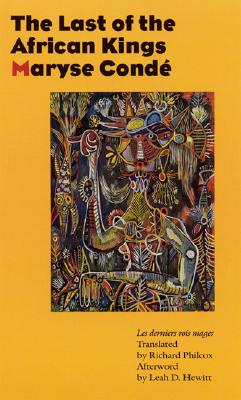 The Last of the African Kings
The Last of the African Kings
by Maryse CondeUniversity of Nebraska Press (Oct 01, 1997)
Read Detailed Book Description
The Last of the African Kings follows the wayward fortunes of a noble African family. It begins with the regal Béhanzin, an African king who opposed French colonialism and was exiled to distant Martinique. In the course of this brilliant novel, Maryse Condé tells of Béhanzin’s scattered offspring and their lives in the Caribbean and the United States. A book made up of many characters and countless stories, The Last of the African Kings skillfully intertwines the themes of exile, lost origins, memory, and hope. It is set mainly in the Americas, from the Caribbean to modern-day South Carolina, yet Africa hovers always in the background.
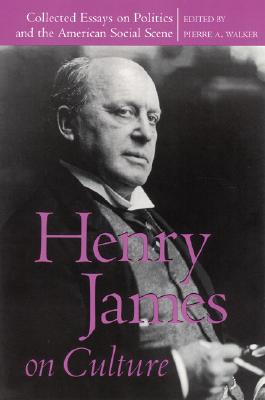 I’m Going to Have a Little House: The Second Diary of Carolina Maria de Jesus (Engendering Latin America)
I’m Going to Have a Little House: The Second Diary of Carolina Maria de Jesus (Engendering Latin America)
by Carolina Maria de JesusUniversity of Nebraska Press (Jul 01, 1997)
Read Detailed Book Description
In August 1960 the publication of Quarto de Despejo (Child of the Dark) created a sensation in Brazil—and in the rest of the world—as it appeared in translations in fourteen languages. That diary of a poor black woman from a favela on the outskirts of S„o Paulo became the best-selling book in Brazilian history. In it, Carolina Maria de Jesus chronicled her life as an unemployed, single parent of three children, eking out a precarious existence selling scrap paper and other detritus found in the city streets. She described how she wrote at night on the scavenged scraps. Her remarkable diary—angry, proud, wretched, and hopeful—was found and published by an enterprising journalist. The book’s success permitted Carolina to leave her flimsy shack in triumph and move into the cinder-block house of her fantasy.†I’m Going to Have a Little House is de Jesus’s second diary. It covers the first year following her rise to fame. In it she recounts her struggles with celebrity, middle-class expectations, and the racial and social tensions her success had exacerbated. This work, never previously translated into English, tells the rest of the story—the grim truth that favela life doesn’t prepare one for middle-class "respectability" and that the fall back into poverty is as easy as the struggle to escape it is difficult. Carolina Maria de Jesus died in 1977, forgotten and in poverty.
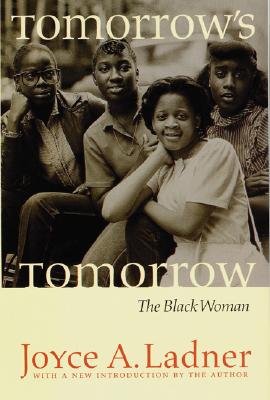 Tomorrow’s Tomorrow: The Black Woman
Tomorrow’s Tomorrow: The Black Woman
by Joyce A. LadnerUniversity of Nebraska Press (Sep 01, 1995)
Read Detailed Book Description
Tomorrow’s Tomorrow is a pioneering sociological study of black girls growing up in the city. The author, in a substantial new introduction, considers what has changed and what has remained constant for them since the book was first published in 1971. Joyce A. Ladner spent four years interviewing, observing, and socializing with more than a hundred girls living in the Pruitt-Igoe housing project in St. Louis.
She was challenged by preconceived academic ideas and labels and by her own past as a black child in rural Mississippi. Rejecting the white middle-class perspective of "deviant" behavior, she examined the expectations and aspirations of these representative black girls and their feelings about parents and boyfriends, marriage, pregnancy, and child-rearing. Ladner asked what life was like in the urban black community for the "average" girl, how she defined her roles and behaviors, and where she found her role models. She was interested in any significant disparity between aspirations and the resources to achieve them.
To what extent did the black teenager share the world of her white peers? If the questions were searching, the conclusions were provocative. According to Ladner, "The total misrepresentation of the Black community and the various myths which surround it can be seen in microcosm in the Black female adolescent."
